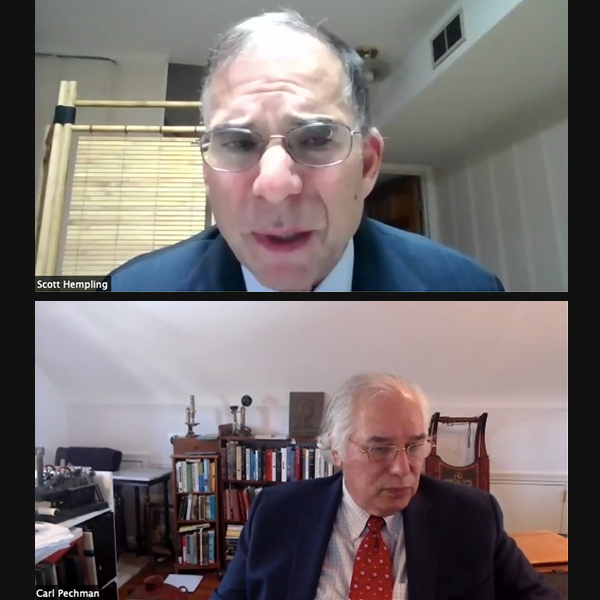Without the blue wave forecast by some pollsters, the Biden administration will likely go for moderate, incremental change to federal energy policy rather than large, ambitious packages, National Association of Regulatory Utility Commissioners’ Energy Resources and the Environment (ERE) Committee heard on Tuesday.
“It’s really about the art of the possible, given the divided government at the national level, assuming Republicans hold the Senate,” said Emily Duncan, director of federal government relations for National Grid, who presented a brief post-election assessment for the committee.
Two runoff elections in Georgia scheduled for Jan. 5 will determine which party controls the Senate: If the two parties are tied, effective control would go to the Democrats, as Vice President-elect Kamala Harris would have the tie-breaking vote.
President-elect Joe Biden has said his top four priorities are the coronavirus, the economic recession, systemic racism and climate change.
“We could see the Democratic-controlled House put together packages on each of those issues; however, I think it’s highly unlikely that a Republican-controlled Senate would take any of those up,” Duncan said. “The real question is what is Majority Leader [Mitch] McConnell [R-Ky.] willing to negotiate with a President-elect Biden?” (See GOP Senate May Limit Biden Climate Ambitions.)
Path of Least Resistance
The new administration will likely pursue regulatory action under existing statutory authorities rather than legislative wins, Duncan said. Biden spent 40 years of his career in the Senate and knows the people and the rules, so “if there is going to be any bipartisanship, Biden is the one to get it done,” she said.
McConnell has called for a COVID relief package to be passed during the lame-duck session of Congress, and if that happens, there may not be another in the first 100 days of the new administration, she said.
“I think we will continue to see pressure at the federal level on energy items related to COVID, in particular federal efforts to implement moratoriums on utility shutoffs and disconnections,” Duncan said. “Obviously as an industry, we work very hard with you, our state regulators, on those issues and would prefer to keep that at the state level, so we’ll be following that closely.”
There also is the possibility for increased funding for the Low Income Home Energy Assistance Program, and technology R&D has always enjoyed bipartisan support, she said.
But there will also be increased conservative judicial scrutiny of any regulations that the administration issues, and a Republican Senate will moderate Biden’s cabinet nominations, and more moderate cabinet secretaries will likely moderate regulations that come out of those agencies, she said.
On FERC
President Trump last week replaced FERC Chairman Neil Chatterjee with fellow Republican Commissioner James Danly. (See Trump Names Danly FERC Chair.)
“We are hearing that [the] Senate Energy [and Natural Resources Committee] may vote as early as next week to advance the two FERC nominees,” Democrat Allison Clements and Republican Mark Christie, Duncan said. With Danly becoming chair, “it will be interesting to see what happens over the next two and a half months” at FERC.
Duncan said that Biden would very quickly move to name Commissioner Richard Glick as chairman, even though Democrats would remain in the minority if the full Senate confirms Clements and Christie.
While Danly has not been supportive of carbon pricing, there is even a question as to whether Glick would be supportive or choose another path, she said.
“However, as chairman, Glick will set the agenda and determine what items are voted on, so it will be interesting to see if the Senate moves to confirm the two commissioners and bring FERC to its full quorum,” she said. “Certainly most in the regulating community would like to see five commissioners at FERC, so we’re hopeful that that will happen.”
Under Glick, the commission is likely to revisit its policies on certifying new natural gas infrastructure projects and probably revise how it conducts environmental assessments under the National Environmental Policy Act, Duncan said.
Colorado Public Utilities Commission Chairman Jeffrey Ackermann, who also chairs the ERE Committee, asked how the Energy Department and EPA might differ under Biden.
Duncan listed an expanded definition of “Waters of the United States” under the Clean Water Act, “fuel economy standards for model years beyond what the original California waiver was for … new source performance standards on methane on private lands … [and] methane flaring controls on public lands as well.”
Nonetheless, with the federal government still divided, states will remain in the driver’s seat in terms of transitioning away from fossil fuels and toward renewable energy resources, she said.






